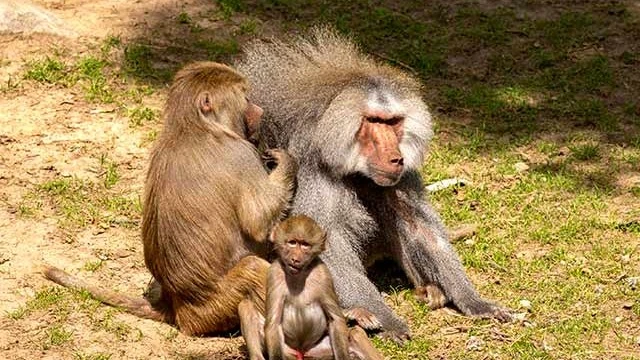Baboon intrusions: Wildlife officials inactive, pointing at mpox aversion

CONSERVATION authorities are not going to remove baboons invading a scatter of villages in Biharamulo District as the game officials fear for monkeypox.
Athanas Sumbuso, the Ruziba ward councillor, said here yesterday that he had recently gone with fellow councillors from Bisibo ward to offices of the Tanzania National Parks (TANAPA) in Biharamulo, as the ward faces similar challenges.
“We were informed that the baboons cannot be removed at this time due to the threat of monkeypox,” the councillor said, expressing frustration at this response.
If the baboons are not promptly removed from residential areas, there is a risk of the community contracting diseases linked to baboons, including monkeypox, he stated.
The situation is compounded by some residents engaging in ritualistic practices involving the baboons, where they consume crops before they are harvested by the community, residents said.
David Mwenenkundwa, the ward councillor for Biharamulo town, said that with baboons taking over some residential areas, this poses a significant risk of monkeypox for those living near the Burigi-Chato National Park.
Thomas Mahenge, the district natural resources officer, confirmed the incident involving the child, saying all the same that efforts are being organised to remove the baboons.
A request has been placed on the Tanzania Wildlife Research Institute (TAWIRI) to design appropriate relocation methods, he said, noting all the same that the monkeypox threat may deter officials from proceeding promptly.
There was an initial effort to prevent crop damage by the migrating baboons, he said, pointing to investigations that revealed that the baboons in the area are not related to those found in the wild.
“They belong to a completely different troop, being found in rocky areas, unlike the baboons found in the forest,” he said, while Dr. Anna Yusuph, the district epidemic control officer, affirmed that while Tanzania has not reported any cases of monkeypox, proactive measures are being taken to control the disease and protect public health.
Regions at high risk of mpox infection include Katavi, Rukwa, Kigoma, Songwe, Mbeya, Dodoma, and Dar es Salaam, she stated, advising that residents in these areas need to avoid contact with or consumption of bush meat and wildlife.
These efforts started as baboons fleeing from the Burigi-Chato National Park to the vicinity of homes in Biharamulo District, Kagera Region started raising mpox scare among the residents.
Interviewed residents in adjacent villages talked of a widespread fear of mpox contracting as the invading beasts aren’t confined to borders of conserved areas.
Bigiri-Chato shares ecosystems with the likes of Ibanda-Kyerwa and Rumanyika Karagwe national parks and that of neighboring countries like Rwanda’s Akagera national park in Kyerwa and Karagwe districts respectively, along with Uganda's Kikati game reserve, a rangeland are to the north of the Katungo River and the Lake Mburo National park.
The large animals have been invading homes, injuring people, damaging crops and reducing public safety to chaos, a situation leading to worries as mpox has been reported in Uganda, Burundi and the Democratic Republic of Congo (DRC) apart from Kenya, more distant from the area.
Fortunatus Ibembe in Ruhita village expressed anxiety and apprehension over baboon intrusions and human-wildlife contacts in a chaotic way that has often led to people being infected with one or other deadly disease.
He appealed to the government and conservation authorities to control the wild animals from getting into villages as fear is rampant of contracting the disease as it is just around the corner.
Angela Sylivanus, another villager, said that people are worried with what is being heard from neighbouring countries about mpox, thus demanding that the government take prompt action on the issue.
Petro Kizuluja, the Nyarubungo ward councillor, underscored the gravity of the situation with a recent incident in Lusabya village, where a child was taken by baboons but was rescued by villagers who intervened.
The child sustained injuries to the face and ears, with the abduction occurring while the child’s mother was scattering leaves on a nearby banana farm, he said, noting that a cry for help from the community worked as people managed to rescue the child. The injuries were significant all the same, he stated.
The baboons pose not only a threat to safety but also a risk of food shortages with extensive crop damage and livestock feed. No compensation is expected to be provided by the government even as the animals pose a major threat to people in the area, he added.
Top Headlines
© 2025 IPPMEDIA.COM. ALL RIGHTS RESERVED






















